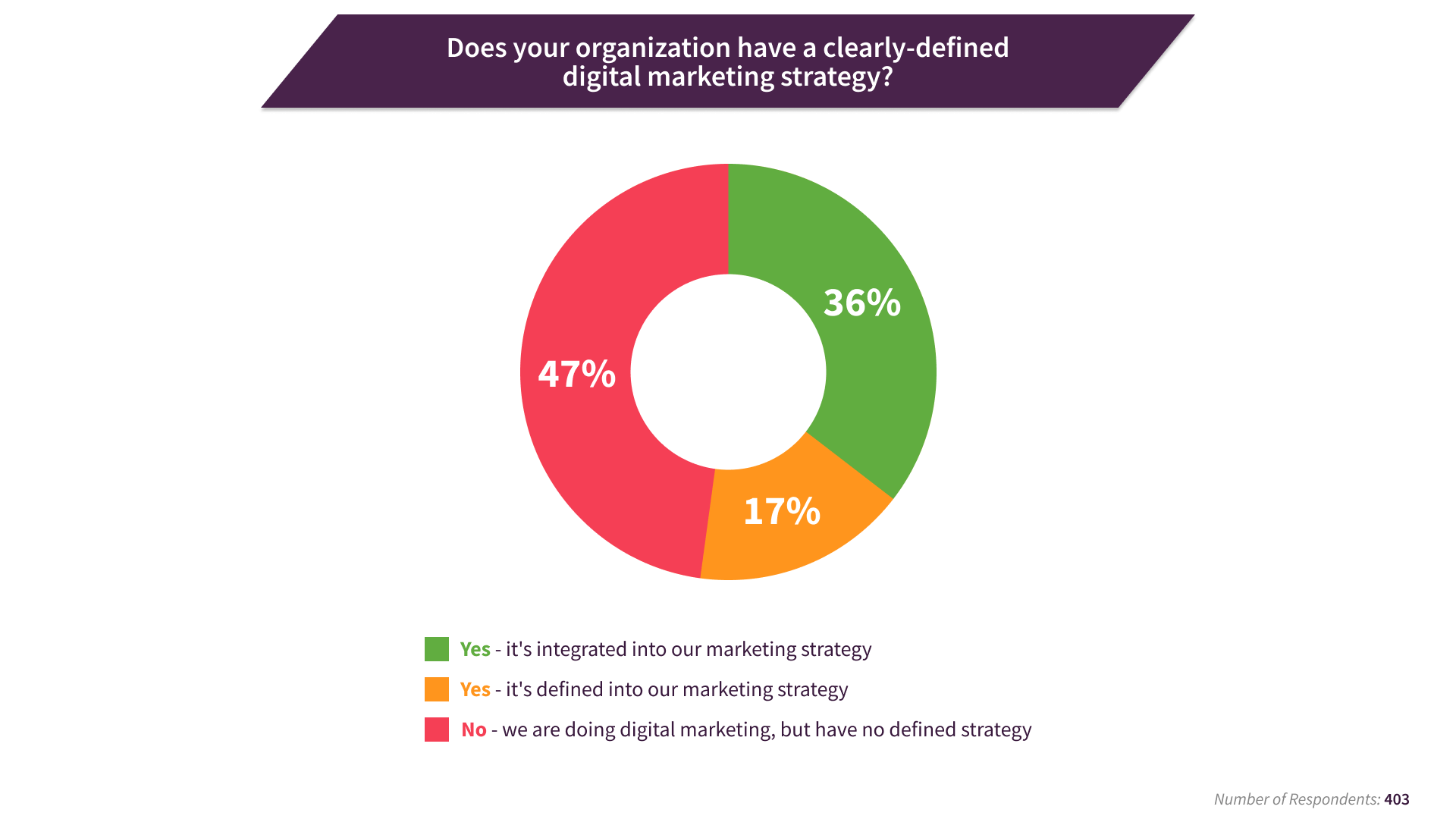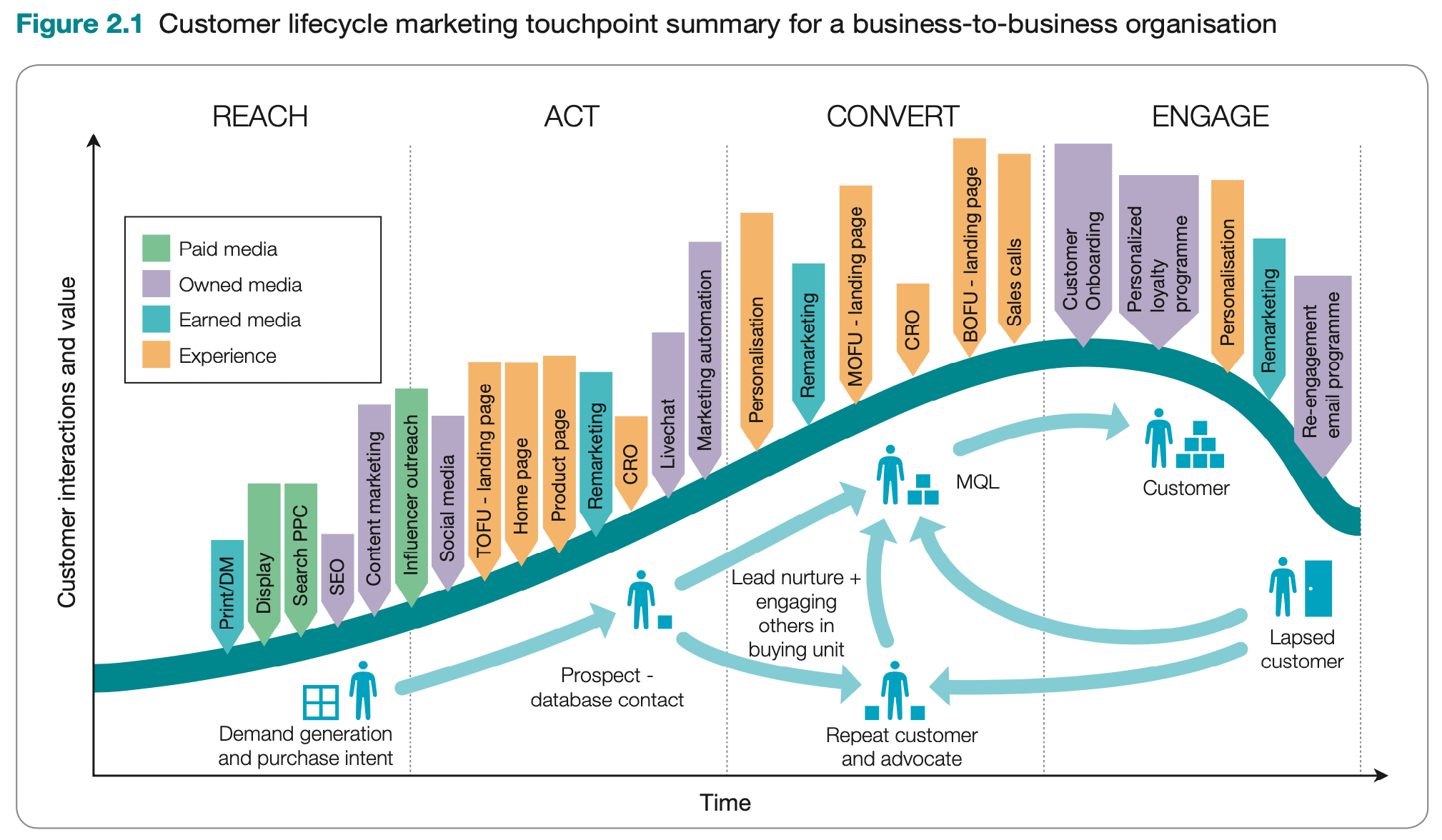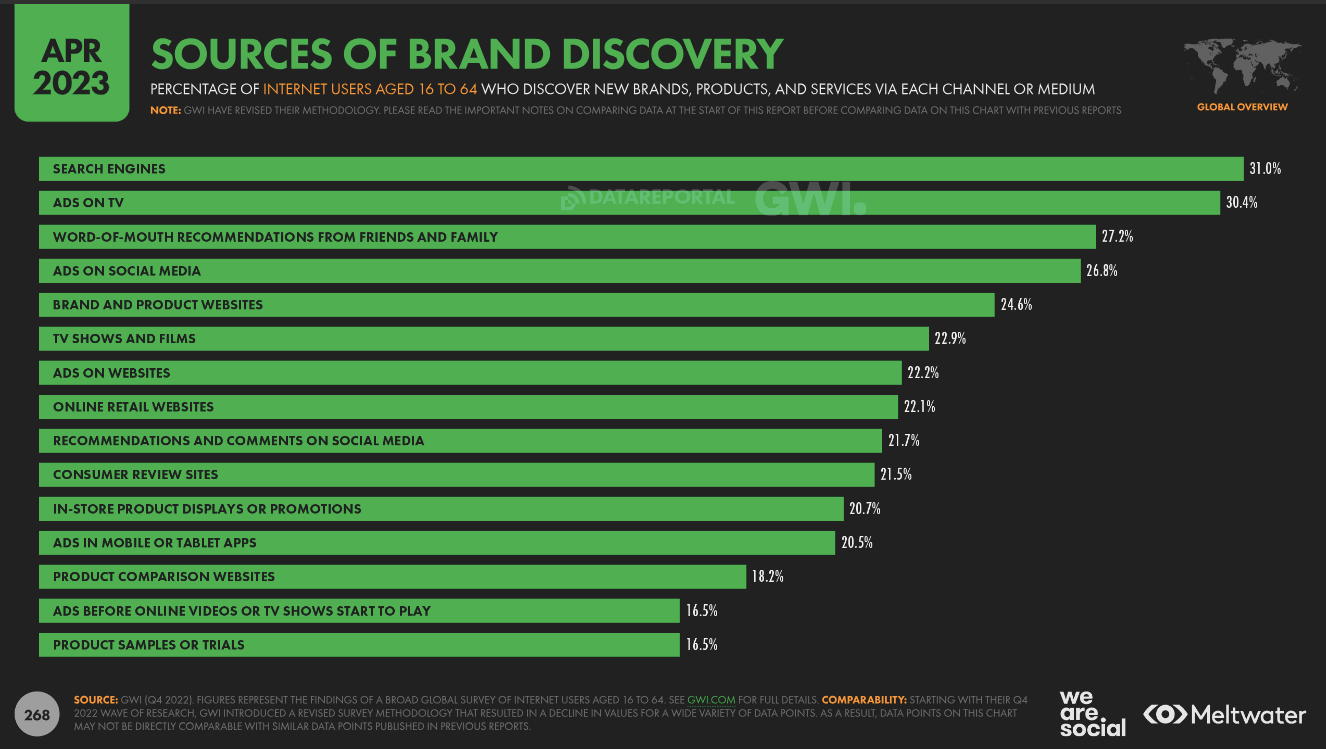Reasons you need a digital marketing strategy in 2024
Digital marketing is more important now than ever. My recommendations on the challenges and opportunities for growth
Digital marketing is deceptively easy if you take the deliberately simple definition from my book Digital Marketing:Strategy, Implementation and Practice where I define Digital Marketing as:
"Achieving marketing objectives through applying digital media, data and technology".
But in reality, digital marketing is a tough challenge since many businesses know how vital digital and mobile channels are today for acquiring and retaining customers. Yet the research shared below shows that many businesses don't have an integrated plan to support digital transformation and business growth based on engaging their audiences effectively online.
In this article, I will explain why a digital marketing strategy is essential for all businesses. If you're looking for an introduction to the scope of digital marketing and what should be included in a plan, see my post explaining What is Digital Marketing.
Regardless of the type of business, if your business doesn't have a strategic digital marketing plan aligned with your business plan, you will suffer from the ten problems I highlight in this article and you will lose out to competitors who are more digitally savvy.
Let's now look at the 10 reasons that you can treat as challenges, or better, as opportunities. For each of the potential digital marketing challenges, I will also recommend marketing solutions and next steps to help you improve your process of digital marketing planning.
10 reasons why you need a digital marketing strategy
It's important to be able to make the business case to invest more in digital marketing since, if you can't convince yourself or your colleagues to invest, then the future of your business is in jeopardy. It's simple, you won't be able to compete to attract new customers in the future.
1. You're directionless - you don't have a plan
I find that companies without a digital strategy (and many that do) don't have a clear strategic goal for what they want to achieve online in terms of gaining new customers or building deeper relationships with existing ones.
Our Managing Future of Digital marketing research report showed that almost half (47%) of companies don't yet have a defined digital marketing strategy, but are doing digital marketing! Free Members of Smart Insights can download the full future of digital marketing trends report.
In this research, a simple test of whether a strategic approach is being used was to ask whether there is a defined plan for digital marketing.

Shockingly, nearly half (47%) of businesses don’t have a digital marketing strategy, but they are doing digital marketing! Over the fifteen years we have been researching adoption of planning for digital marketing, we have found the percentage of businesses without a planned approach has remained similar, suggesting there are significant barriers to integrating planning in organizations.
You can see that around one-fifth (17%) do define their digital strategy. This is a great first step in the process towards a fully integrated strategy. Where you want to get to is where all digital marketing activities are prioritized as part of overall investments in your marketing.
And if you don't have goals with SMART digital marketing objectives you likely don't put enough resources to reach the goals and you don't evaluate through analytics whether you're achieving those goals.
Our templates can support you to create more realistic forecasts of investing in digital media and improving conversion rates. Use our RACE digital marketing dashboard to simplify your reporting of Google Analytics goals for monthly reviews.
2. You have poor digital maturity since digital marketing doesn't have enough people/budget given its importance
We often see that businesses of all sizes have insufficient resources devoted to both planning and executing digital marketing. There is likely to be a lack of specific specialist online marketing skills which will make it difficult to respond to competitive threats effectively.
A good starting point to make the case for more investment in digital marketing is to assess your digital maturity. To help our members we have created a free download of maturity benchmarks like that shown below.
We have collected these visuals together in a single download so that you can easily review them and print the most relevant for you. We've designed them so members can use them for different scales of business and roles. There are more than 10 templates which cover:
- Digital marketing for small and medium businesses using our RACE framework
- Digital transformation for larger businesses
- Digital channel marketing activities including SEO, Social media, email and content marketing
I designed this example for reviewing digital marketing effectiveness with senior leaders in small and medium or larger businesses. I recommend you score your current maturity across each of the pillars of effective digital marketing and then set targets of how you need to improve within the next 12 or 18th months and put in place a plan to achieve that. We find that often, many businesses are at level 1 or 2 and should aim to reach at least level 3 when they will have a planned approach and will be able to compete.
3. Existing and start-up competitors will gain market share through optimizing their always-on marketing
If you're not devoting enough resources to digital, or you're using an ad-hoc approach with no clearly defined strategies, then your competitors will eat your digital lunch since they will be more focused on always-on marketing! They will be adept at using the online marketing techniques such as organic and paid search and social media marketing which are so vital to gaining brand awareness online. The importance of digital channels in influencing brand discovery is highlighted by this research from Global Web Insight published in the Datareportal Global Snapshot report.
This research shows that if you don't compete by maintaining quality online content to gain visibility within search engines and social networks, then you're missing out on opportunities to reach new customers.
Always-on marketing refers to the investments in paid, owned and earned media needed across the customer lifecycle shown in this figure from the eighth edition of my Digital Marketing: Strategy, Implementation and Practice book. Investment is needed to maintain visibility and support conversion and retention continuously as people search for and select products online.

Many brands don't get the balance right between investment in always-on across these activities and campaigns, so neglect AOM.
Our RACE planning framework defines how to create a plan covering both always-on and campaign communications. You can learn more in our free download.


Comments